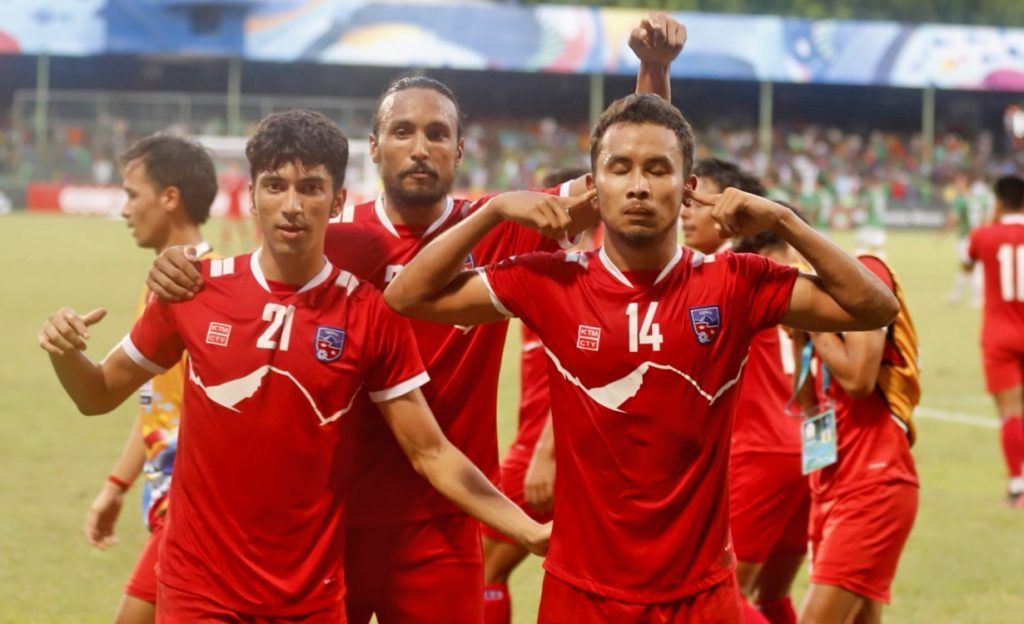Nepal's Poor Performance In The 2026 World Cup Qualifiers
Dec 17, 2024 • 0 views
The Nepal national team once again found itself on the sidelines of a major football festival. The 2026 World Cup qualifiers turned into a real nightmare for the team. Fans who hoped that this cycle would be a step forward were left disappointed. And although the players seemed to be trying hard at the start of the World Cup qualifiers, the realities of the second stage quickly put everything in its place. If you want to bet and play in a casino, you should familiarize yourself with information about the popular bookmaker https://mostbet-npr.bet/.

Defensive failures and lack of attack
The main problem for the Nepal national team was the defense. It seemed that the defense line was playing on autopilot, not reacting to the maneuvers of the opponents. Most of the goals conceded were the result of elementary mistakes: inattention, poor coordination and lack of understanding between the players.
However, Nepal's troubles were not limited to defense. The attack, which was supposed to bring points in the most important matches, turned out to be almost helpless. The game up front resembled attempts to break through a concrete wall. The team sorely lacked speed, creativity and sharpness. As a result, Nepal became one of the outsiders of the group, not even managing to impose a fight on stronger opponents. True, in the first round of qualification, they passed Laos with a total score of 2-1 over 2 matches.
Results of the second stage of the 2026 World Cup qualification
When the second stage began, optimists were still hoping for a miracle. But already in the first games it became clear that Nepal had serious problems. The results speak for themselves:
Match against the UAE: The Nepal national team was literally destroyed on the field. The crushing score of 0-4 showed the huge difference in class between the teams, with all the goals scored in the first half.
Game with Yemen: This was a chance to score at least one point, but even here Nepal could not hold the defense. The offensive defeat was a blow to the already low self-esteem of the team. Even though there was no rout, the Nepalese failed to score.
The confrontation with Bahrain: The opponent showed class, leaving Nepal far behind. And again, problems in defense and a lack of sharpness up front. For 2 matches, the total score is 8-0 and this is another disgrace.
By the end of the stage, the team lost all chances to advance. Already in the middle of the qualification, the fans switched from dreaming about the World Cup to discussing how to improve the situation in the future. Another game with the UAE ended with the same rout 0-4, but Nepal got its first goal and point in the game with Yemen, playing 2-2.
Why did Nepal fail? The reasons are as follows:
Poor physical preparation. Nepalese footballers are clearly inferior to their competitors in endurance and strength. In many matches, the team started to play vigorously, but closer to the middle of the second half, they simply "sat down" physically.
Problems with financing. Football in Nepal still remains in the shadow of other sports. Without proper funding, it is difficult to expect the team to compete at the level of Asian giants.
The psychological factor. Each new defeat only worsened the situation. The players looked depressed, which affected the game. And the lack of support from the stands, especially in away matches, made their situation even more difficult.
Despite the complete failure in this qualification, Nepal has potential. But we must admit that the path to success will be long and thorny. To begin with, the football federation should reconsider its approach to player development.
This includes:
Strengthening children's and youth football schools.
Finding talent in remote areas of the country.
Attracting qualified coaches who will help players reach a new level.
Improving infrastructure and conditions for training.
Fans hope that the lessons of this qualification will help avoid similar mistakes in the future. In the meantime, fans can only watch other teams play at the 2026 World Cup, while dreaming that Nepal will one day make it to the world football arena. The poor performance in the 2026 World Cup qualifiers was a bitter disappointment for Nepal. But this is a reason not to give up, but to look for ways to grow.
